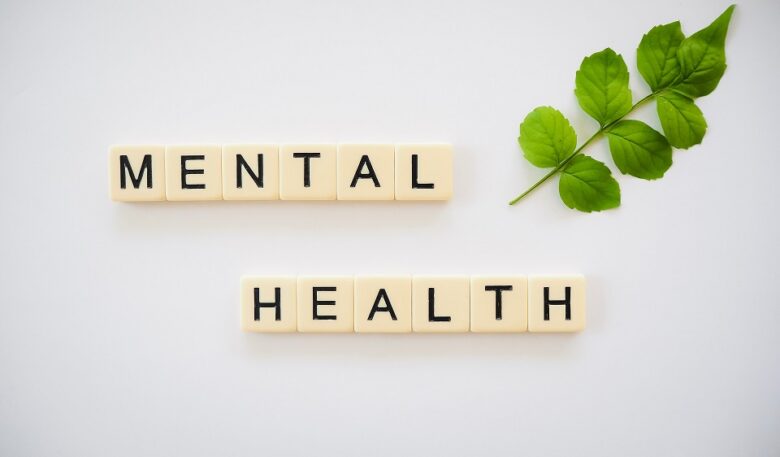In our hectic lives, mental health is often pushed to the back burner. Our emotional health is often neglected as we juggle our work, family, and social commitments. What if we told you that putting mental health first could lead to a more fulfilled and happier life? Mental wellness is just as important for happiness as physical health. Mental health affects how we feel, think, and act every day.
This blog post will explore different aspects of mental well-being and provide practical solutions. Let’s take this journey together to a happier, healthier you.
Mental Health: It’s Important
Our mental health is fundamental to our well-being. Mental health impacts all aspects of our lives, from work to relationships. We can enjoy life and navigate through challenges better when we are mentally strong. Neglecting mental health can have a series of negative consequences. Stress can affect not only your emotional health but also your physical health. Ignoring feelings can lead to the development of anxiety and depression.
It promotes adaptability and resilience. It helps us cope with the ups and downs of life. Prioritizing mental health means investing in happiness, not just for us but for others as well. Understanding the importance of mental health can help break cycles that are based on neglect and misunderstanding. Recognizing the importance of mental health in leading a fulfilling and joyful life is the first step towards better mental wellbeing.
Common Mental Health Issues
Mental health problems can take many forms and often affect daily life. Anxiety is a common concern. Anxiety can cause panic attacks and constant worry, which disrupt daily routines. Depression is another issue that affects motivation and mood. It can make people feel hopeless and disconnected from their joy.
Obsessive Compulsive Disorder (OCD), also known as OCD, is characterized by unwanted thoughts and repetitive behavior. This disorder can make everyday tasks difficult. Bipolar disorder is characterized by extreme mood swings. It can oscillate between episodes of high energy and deep lows. It is important to understand this complexity to have empathy for those who are affected. Every mental health problem is unique, but they all share a common trait: They deserve compassion and attention. The first step to fostering support and understanding is to recognize these challenges.
Find Help: Treatment and Medication Options
Seeking help when it comes to your mental health is a brave step. Therapy provides a safe environment to explore feelings and thoughts. There are many different approaches, from cognitive-behavioral (CBT) to mindfulness sessions. Some people may benefit from medication. Antidepressants and anxiolytics may alleviate symptoms to improve daily functioning. Consult healthcare professionals to find the best path for you.
Another valuable resource is support groups. Support groups connect you to others who are going through similar challenges, which fosters understanding and camaraderie. It takes patience and time to find the right therapist. During consultations, don’t be afraid to ask questions. You must feel understood and comfortable. You may have multiple options to choose from on your journey towards improved mental health. Each option supports your individual needs on this essential healing path.
Lifestyle Changes to Improve Mental Health
Small lifestyle changes can have a significant impact on your mental health. Begin with a healthy diet. Your physical and mental well-being is fueled by nourishing your body with healthy foods. Regular exercise is also important. Even short walks release endorphins, which are often called the body’s natural mood-lifters. Make it a part of your daily routine to do something you love, whether it is dancing, biking, or yoga.
The quality of our sleep also has a major impact on how we feel every day. Establish a relaxing bedtime routine, and keep screens out of the bedroom before you go to sleep. It’s important to maintain social connections. Spend time with people who lift you up. Building relationships of support is essential for building emotional resilience. Reduce screen time, and instead engage in hobbies and creative pursuits that bring you joy. This change not only reduces daily stress but also fosters a feeling of accomplishment.
Self-care and Mindfulness: The Power of Self-care
Self-care and mindfulness are essential for mental health. Your daily life can be transformed by prioritizing your health. Self-care is about taking the time to recharge. It could be as simple as taking a bath, reading a good book, or going for a nature walk. These moments of solitude will help you to ground yourself in the midst of life’s chaos.
Self-care and mindfulness go together beautifully. It encourages you to live in the moment and let your worries and thoughts drift by without judgement. This awareness can be developed through techniques such as meditation or deep breathing. These practices, when combined, create a space for healing and reflection. These practices help us to cope with stressors and other challenges. Incorporating both into your daily routine fosters balance and clarity. As you incorporate these essential aspects into your life, you’ll notice a change in your mood and outlook.
Mental Health: Breaking the Stigma
The stigma surrounding mental health is an enormous burden that many people carry alone. This stigma is often rooted in fear and misconceptions. It creates barriers to those who are seeking help. Openly discussing mental health can change perceptions. Sharing personal experiences can lead to compassion and understanding. Celebrities and public figures who openly discuss their struggles normalize the conversation.
Education is crucial in eradicating stigma. Schools, workplaces, and communities should run awareness campaigns that highlight the importance of mental health as well as physical health. It is important to create an environment where people feel comfortable discussing their problems without fear of judgement. Encouragement from family and friends can make a huge difference. We empower others by embracing vulnerability. Together, we can build a culture that values well-being and rejects stereotypes.
Conclusion
It is not an endpoint, but a journey to take control of your mental health. This requires active engagement and a commitment to oneself. Begin by accepting that you are entitled to help when needed. Support systems, whether they are therapy or medications, can make a big difference. Incorporate small lifestyle changes daily. Simple lifestyle changes like regular exercise and balanced nutrition, as well as adequate sleep, can have a positive impact on emotional health.
Self-care is important. You can boost your mood by prioritizing activities that will recharge your spirit. Reading, painting, or simply taking a few quiet moments to reflect are all great ways to do this. Meditation and mindfulness practices like them foster awareness of the moment. Clarity helps to manage anxiety and stress. Breaking the stigma around mental health begins with open discussions and understanding in our communities. This conversation is vital to growth and healing.
FAQs
1. What are the signs that I may need mental health help?
Be on the lookout for feelings of anxiety or sadness that persist, such as changes in sleep patterns or appetites, withdrawal from social events, difficulties concentrating, or overwhelming emotions.
2. How do I locate the right therapist for me?
You can start by searching online for local therapists through directories such as Psychology Today, or you can ask friends if they are comfortable with sharing their experiences.
3. Natural remedies: Can they be used in conjunction with traditional treatments?
Yes! Yoga, fish oil, and herbal supplements like St. John’s wort, along with regular physical activity, can all help regulate mood.




